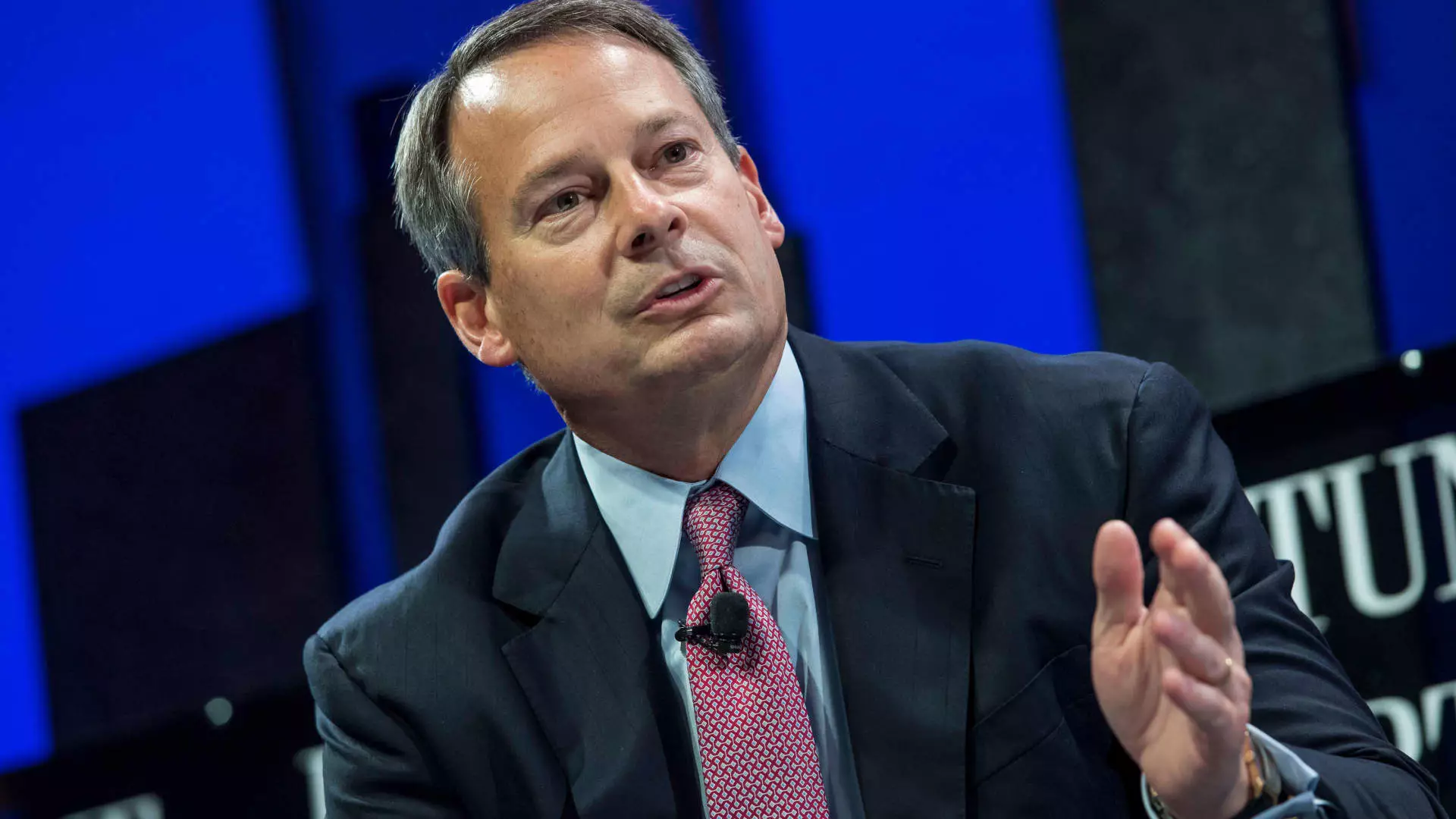In the complex world of stock markets, insider transactions often serve as a barometer of underlying corporate health and future outlooks. Last week, a series of notable stock sales by top executives across diverse industries—airlines, semiconductors, financial services, and fast-food chains—raised eyebrows and sparked suspicion among seasoned investors. While some view these sales as routine portfolio management, a deeper analysis suggests that many of these insiders might be signaling more than just liquidity needs. They may be voicing subtle reservations about their companies’ prospects, an act that deserves scrutiny in today’s precarious economic environment.
For example, Charles Schwab’s Walter Bettinger, a seasoned leader of a financial powerhouse, offloaded nearly 174,000 shares worth over $17 million. The timing of his sale, amidst a 16% rally in the last quarter, hints at a leadership that senses either overvaluation or upcoming turbulence. Such insider sales, especially in a rallying market, are often perceived as warning signs—albeit sometimes masked as routine or strategic moves. Investors need to interpret these actions cautiously, recognizing that they could be a form of internal risk assessment, hinting that management is hedging their bets.
Similarly, in the semiconductor arena, NXP Semiconductors’ CFO, William Betz, sold over 82% of his holdings, signaling potential doubts about the sector’s near-term stability. Despite a modest 12.7% gain over three months, the stock’s year-to-date decline of nearly 10% underscores vulnerabilities within this cyclical industry. CFOs, positioned close to financial and operational data, are often among the first to act when they foresee challenges ahead. Their sales are not simple wealth transfers but preemptive signals that major stakeholders might be bracing for an imminent downturn or correction.
The transportation sector, epitomized by United Airlines and SkyWest, presents a similar narrative. United’s CFO unloaded a significant portion of shares, underscoring a pattern observed across several airline insiders who, despite a recent rally of over 16% in three months, continue to reduce their holdings. These actions seem contradictory to traditional buy-and-hold strategies in a recovering sector, revealing perhaps a lack of confidence in sustained growth or doubts about post-pandemic recovery resilience. This cautious stance becomes increasingly credible considering the airline industry’s ongoing struggles with rising fuel costs, labor shortages, and uncertain demand.
In stark contrast, consumer-driven businesses like Wingstop reveal more optimistic signals. Its CEO, Michael Skipworth, sold a modest stake despite the company’s 25% annual gain and a 31% surge in the last quarter. Such sales could be viewed as a sign of managerial confidence, cashing in on lofty valuations, or simply as a liquidity strategy. However, given the broader context of insider sales in other sectors, one must question if even in consumer resilience, executives see a looming slowdown.
Decoding the Significance and What It Means for Investors
Insiders’ selling behaviors are often fraught with nuance. While some argue these are standard practices—diversification, personal financial planning, or tax considerations—the patterns pointing to large-volume sales amid stock rallies are troubling. Such moves often coincide with broader market overextensions, signaling that core insiders may have already priced in downside risks that the retail investor has yet to acknowledge.
From a practical perspective, cautious or strategic insider sales should not be dismissed as mere routine activity. Instead, they must be evaluated within the context of macroeconomic stressors—rising inflation, geopolitical tensions, and regulatory pressures—factors that threaten to turn recent gains into losses. Insiders, who possess more information than the average investor, are subtly warning us that rampant optimism might be misplaced.
Moreover, this trend raises philosophical questions about market valuation and overconfidence. If those closest to the companies are trimming their stakes when prices are high, it might be time for the broader market to rethink its bullish narratives. The disconnect between insider confidence and public enthusiasm can serve as a warning sign, urging investors to remain vigilant and skeptical of runaway rallies.
The recent wave of insider sales reflects a complex narrative: one of cautious optimism intertwined with thinly veiled skepticism. Investors would do well to pay close attention to these subtle signals, understanding that executive stock movements are often among the earliest signs of concealed risks that could shake markets in the near future.

